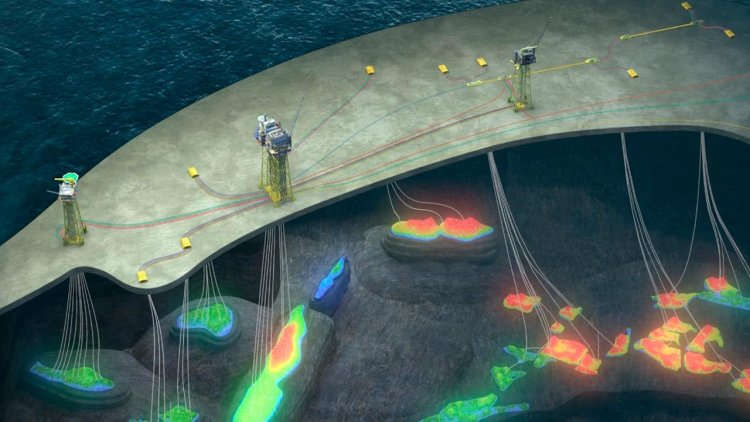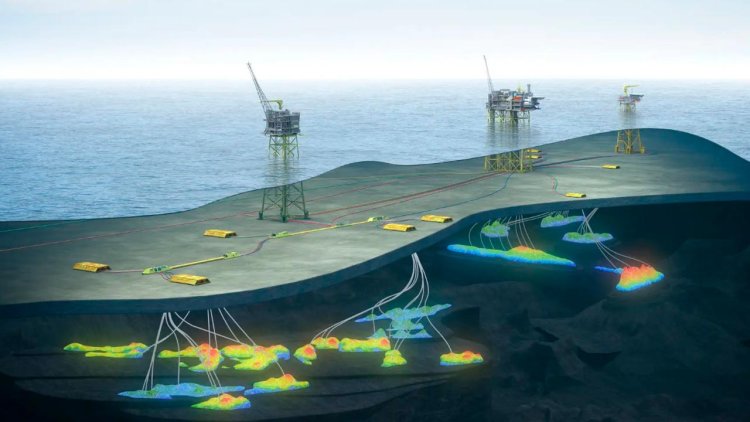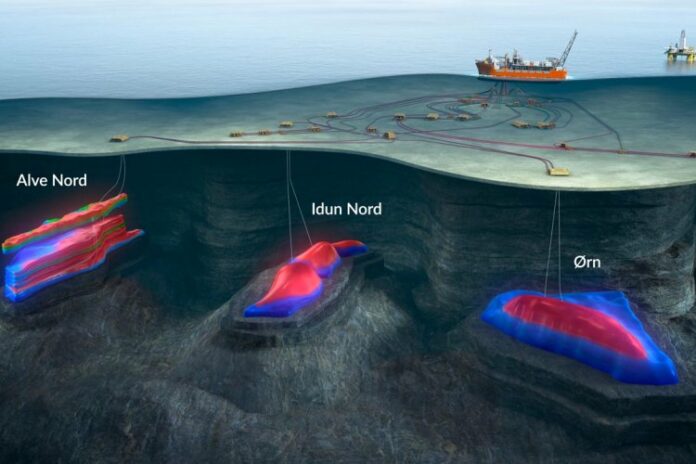Aker BP and its partners are submitting a total of ten PDOs (plans for development and operation) and one plan for installation and operation (PIO) to the Ministry of Petroleum and Energy (MPE). With total investments of more than NOK 200 billion in real terms, these Aker BP-operated oil and gas projects represent one of the largest private industrial developments in Europe.
“The scope of the development plans we are submitting to the Minister of Petroleum and Energy is a manifestation of our ambition to create the oil and gas company of the future – with low costs, low emissions, profitable growth and attractive returns,” says Aker BP CEO Karl Johnny Hersvik.
Total recoverable resources in these development projects amount to 730 million net barrels of oil equivalent for Aker BP. The projects will also contribute to extending the life of existing production and enable future growth opportunities.
The company’s share of the investments is approximately 70 percent, amounting to approximately USD 19 billion in nominal terms. The average break-even price is estimated to USD 35-40 per barrel.
Along with several measures to increase efficiency and recovery, these development projects will enable Aker BP’s oil and gas production to grow from around 400,000 barrels per day in 2022 to around 525,000 barrels in 2028.

Hersvik says:
“We are uniquely positioned for profitable growth, not least through our role as operator for several of the major field developments on the Norwegian shelf in the years ahead. This gives us a great opportunity to lead the way in transforming the oil and gas industry, in close cooperation with our licence partners, our alliance partners and other strategic partners.”
Aker BP’s CO2 emissions per barrel are among the lowest in the entire oil and gas industry. The emission intensity will be further reduced when these new projects, which will predominantly receive power from shore, come on stream. This is an important element in the company’s strategy to achieve net zero emissions by 2030.
“We take the global climate challenges seriously, and we have a three-pronged strategy to meet the world’s growing need for energy while simultaneously contributing to reduce emissions. We will deliver oil and gas with a minimum climate footprint. We will generate revenue that can be used to facilitate the energy transition. And we will contribute knowledge, data and experience to support new industries. This creates growth and improvement that reach far beyond our own business. These development projects provide an important foundation for this strategy,” says Hersvik.
Hersvik points out that the stimulus package adopted by a broad parliamentary majority in the summer of 2020 has been important for both the supplier industry and for the society at large.
“The stimulus package allowed oil companies to embark upon new commitments, in the midst of a pandemic, and in an increasingly uncertain world. The wheels started turning again. Now here we are, just over two years later, seeing the direct results of that stimulus package,” Hersvik emphasises.
Aker BP’s operated development projects are expected to contribute to more than 150,000 full-time equivalents in Norway in supplier companies across the country. In addition to ensuring activity and jobs, the projects contribute to developing technological expertise in the Norwegian industry in the period before renewable projects are expected to increase in scale.

Aker BP is already the largest taxpayer in Norway that is not state owned and expects to pay more than NOK 80 billion in taxes for 2022.
“With an average oil price of USD 65 per barrel, these development projects will generate net tax payments to the Norwegian state totalling NOK 160 billion in real terms, and thus make an important contribution to financing welfare schemes and strengthen the state’s ability to support the energy transition, says Hersvik.
In connection with the PDO submissions, Aker BP has awarded a number of contracts to alliance partners and other strategic suppliers. The total value of the contract awards amounts to tens of billions of kroner.
The awards are aligned with Aker BP’s strategy to increase value creation by establishing alliances and strategic partnerships with our suppliers.
“Through the development of the Yggdrasil area (formerly NOAKA), which is the largest of the projects, we aim to set new standards for field development and operation using new technology, data-driven decisions and work processes, remote operations and unmanned platforms.”



